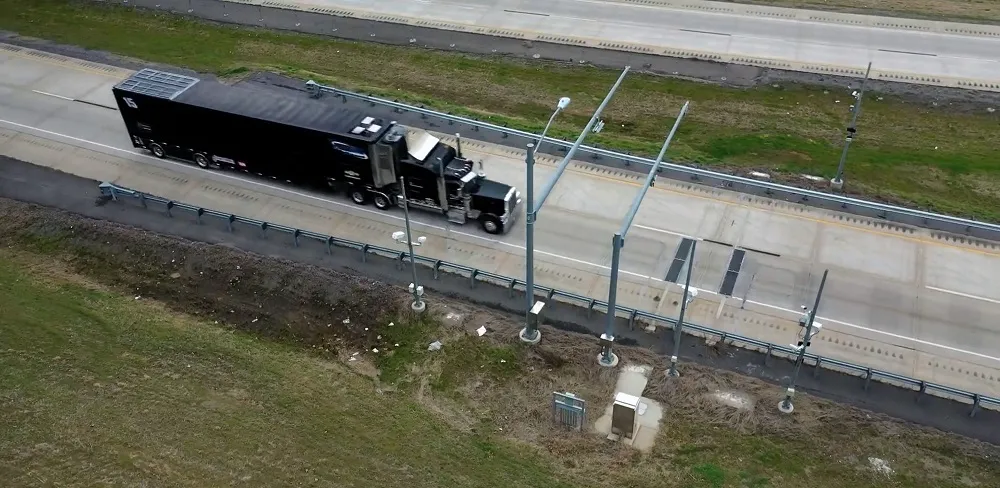
In 2006, Bermuda took a decision to deploy the world's first countrywide Electronic Vehicle Registration (EVR) system that would ensure automated compliance monitoring of vehicle registration requirements, including annual registration, payment of associated taxes, valid insurance, mechanical and emission inspections, payment of outstanding traffic citations and so on.
In 2007,
Interestingly, even before the system went live, the estimated 8 per cent of non-compliant vehicles was halved to 4 per cent, the result of local publicity and public awareness of the programme.
As Randy Rochester, director of Bermuda's Transport Control Department, explains, "From inception, a crucial component of the Bermuda EVR system was the continual outreach to all stakeholders, including the public at large, the media, and other government entities, including, our Minister, the Premier of Bermuda, Dr. Ewart Brown.
"We explained the short- and long-term benefits of the system, the expected outcome of the programme, as well as the intended process for implementation. This inclusive approach ensured motorists were able to come into compliance over the course of a full year during a normal vehicle registration cycle.
"It was determined that being proactive versus penalising would be more beneficial and assist with buy-in to the programme. As a result, we had more widespread acceptance than initially expected. It was easier to be compliant than not, with the public understanding our rationale... 'If Everybody Pays, Everybody Saves'."
Bermuda's EVR system uses wireless Radio Frequency Identification (RFID) technology to electronically identify vehicles to validate legal status and authenticity of vehicle data though the use of readers and windshield sticker tags which interface with department of motor vehicle and law enforcement databases and a custom violation processing system. In terms of automated vehicle monitoring devices, the EVR system deploys a combination of fixed read points on the roadway, tripod-mounted transportable readers that officers use to establish mobile checkpoints and handheld readers used by foot-patrol officers.
As turnkey technology provider, TransCore was responsible for system design, development, RFID technology, lane and back office applications systems and integration with government agency databases. The RFID technology included a specifically developed security sticker tag which is rendered inoperable if tampered with, or if there is an attempt to remove it from the windscreen.
Benefits As mentioned above, once the public realised an automated enforcement system that would be operational 24/7 through roadside readers to catch offenders was being implemented, non-compliance was cut in half. All four-wheeled vehicles on the island were tagged with a custom RFID windshield sticker tag as a process step during the normal 12-month vehicle registration process.
Vehicle owners who didn't get the message from the advance publicity, paid for it - some $267,000 was received in fines in the first three months after the system went live in July 2008.
Project:
Electronic Vehicle Registration - Bermuda
Cost: US$2 million
ROI: $14 million over six years
Benefits:
• 24/7 automated enforcement of vehicle compliance
• Vehicle compliance went from 92% to 99% after implementation
• Revenue generation ($267,000) received in fines in first three months)
• Reduced uninsured vehicles
• Environmental benefits
• Reduced avoidance of registration fees
• Improved safety
• Increased capabilities for law enforcement and homeland security Based on the success of the system since then, and taking into account annual vehicle tax increases, Bermuda estimates it will recoup over $14 million for its $2 million investment in the system.
But there are other financial benefits, not least through improved efficiency gains brought about by the fact that the system is entirely automated, in terms of detecting and screening vehicles for compliance with vehicle regulations on a 24/7 basis, as well as processing enforcement actions for non-compliant vehicles. This is in contrast to using manual, visual-based identification, tracking and enforcement systems which are labour-intensive and largely ineffective.
EVR also serves the public by helping to keep unsafe, uninsured and emission-polluting vehicles off the roads, ensuring safer driving conditions resulting in lower premiums and lower emission levels.
"The Electronic Vehicle Registration system is a smart, efficient and effective way to regain lost revenue and enforce compliance. This system has been working in a stable and efficient manner since its deployment in 2008. The EVR system has impressed me with its accuracy in identifying violators using the RFID technology and its minimum hardware and software maintenance requirements. We also use the EVR system to look out for stolen vehicles, which has been a great help to the Bermuda Police Service in locating the vehicles. EVR's automation feature of processing citations has increased efficiency tremendously. I would recommend this system to any country that faces a problem with compliance for vehicle registration", says Michelle Walkes, GMD Consulting
"We had more widespread acceptance than initially expected. It was easier to be compliant than not",says Randy Rochester, Director, Transport Control Department, Bermuda
"EVR is important because the money recouped from those cheating the system will go toward maintaining roads and improving safety with programmes like drivers' education. And ultimately, the objective of EVR is to have every four-wheel vehicle in Bermuda properly registered - because when everybody pays, everybody saves", says Dr. Ewart Brown, Premier and Minister of Tourism & Transport, Bermuda









